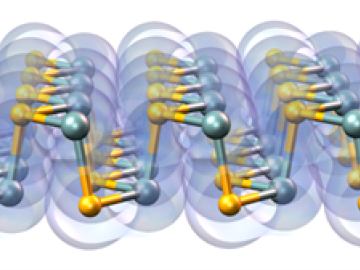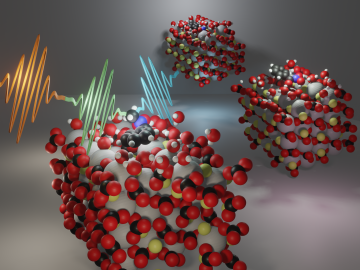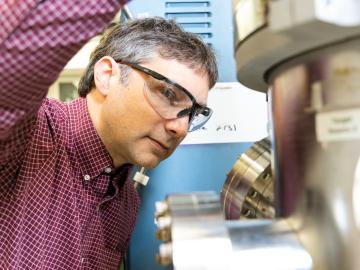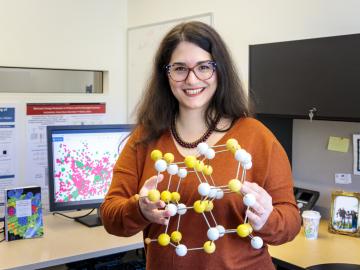Filter News
Area of Research
News Topics
- (-) Chemical Sciences (2)
- (-) Simulation (2)
- 3-D Printing/Advanced Manufacturing (4)
- Advanced Reactors (1)
- Artificial Intelligence (3)
- Big Data (3)
- Bioenergy (4)
- Biology (5)
- Biomedical (2)
- Buildings (8)
- Clean Water (3)
- Climate Change (3)
- Composites (2)
- Computer Science (4)
- Coronavirus (4)
- Critical Materials (3)
- Decarbonization (1)
- Energy Storage (6)
- Environment (5)
- Exascale Computing (1)
- Grid (4)
- High-Performance Computing (4)
- Hydropower (5)
- Irradiation (1)
- Isotopes (1)
- Machine Learning (2)
- Materials (11)
- Materials Science (3)
- Microscopy (3)
- Nanotechnology (2)
- National Security (3)
- Neutron Science (2)
- Partnerships (1)
- Physics (1)
- Polymers (1)
- Quantum Science (2)
- Space Exploration (3)
- Summit (1)
- Sustainable Energy (6)
- Transportation (2)
Media Contacts

A multi-lab research team led by ORNL's Paul Kent is developing a computer application called QMCPACK to enable precise and reliable predictions of the fundamental properties of materials critical in energy research.

Researchers at Oak Ridge National Laboratory are using state-of-the-art methods to shed light on chemical separations needed to recover rare-earth elements and secure critical materials for clean energy technologies.

Several electrolyte and thin-film coating technologies, developed at Oak Ridge National Laboratory, have been licensed by BTRY, a battery technology company based in Virginia, to make batteries with increased energy density, at lower cost, and with an improved safety profile in crashes.

To advance sensor technologies, Oak Ridge National Laboratory researchers studied piezoelectric materials, which convert mechanical stress into electrical energy, to see how they could handle bombardment with energetic neutrons.




